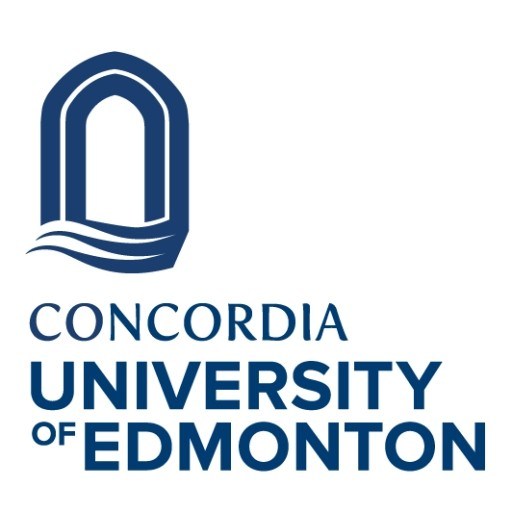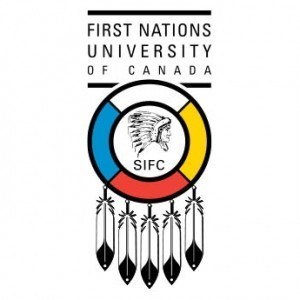The Bachelor of Science in Biology at Concordia University of Edmonton offers students a comprehensive and rigorous education in the sciences, preparing graduates for diverse careers in research, healthcare, environmental management, education, and biotechnology. This four-year undergraduate program is designed to provide a solid foundation in biological principles while encouraging students to develop critical thinking, laboratory skills, and scientific communication. Students will explore core areas of biology including cell biology, genetics, ecology, physiology, evolution, and microbiology, gaining both theoretical knowledge and practical experience through hands-on laboratory work and research projects. The curriculum emphasizes the diversity of life forms, the mechanisms that underpin biological processes, and the interactions within ecosystems, fostering an understanding of the biological systems that sustain life on Earth. Throughout the program, students have opportunities to specialize by choosing electives aligned with their interests, such as microbiology, environmental biology, or molecular biology. The program also encourages engagement in research activities, internships, and collaborations with faculty experts, providing valuable real-world experience and networking opportunities. Graduates of the Biology (4-year) program are well-equipped for further studies in graduate or professional schools, including medicine, dentistry, or graduate research in biology and related fields, or for entry-level positions in research institutions, environmental agencies, healthcare organizations, and biotechnology companies. Concordia University of Edmonton’s commitment to academic excellence, small class sizes, and personalized support ensures that students receive a high-quality education tailored to their academic and career goals, cultivating both scientific competence and ethical responsibility in the understanding of complex biological systems.
The Bachelor of Science in Biology (4-year) at Concordia University of Edmonton offers a comprehensive and in-depth curriculum designed to provide students with a solid foundation in biological sciences and prepare them for diverse career paths or advanced studies. The program covers fundamental biological principles, including cell biology, genetics, evolution, ecology, and physiology, ensuring students gain a broad understanding of living organisms and their interactions with the environment. Students have the opportunity to explore specialized areas such as microbiology, botany, zoology, and molecular biology, allowing for tailored academic experiences aligned with their interests and career goals. The curriculum combines rigorous coursework with practical laboratory experiments, fieldwork, and research projects, fostering hands-on skills and scientific inquiry. Additionally, the program emphasizes critical thinking, quantitative analysis, and effective communication, equipping graduates to excel in research, education, healthcare, environmental management, and biotechnology sectors. Throughout their studies, students benefit from small class sizes, personalized mentorship, and access to modern laboratories and research facilities. The program also encourages participation in internships, co-op placements, and collaborative research initiatives, providing valuable real-world experience. Graduates of the Biology (4-year) program are well-prepared for advanced academic pursuits, including graduate studies and professional schools, or for immediate entry into various scientific careers. Concordia University's innovative and supportive learning environment ensures students are equipped not only with technical knowledge but also with the ethical and social perspectives necessary for responsible practice in biological sciences.
Program requirements for the Bachelor of Science in Biology (4-year) at Concordia University of Edmonton include completing a total of 120 credit hours, which encompass both core courses and electives. Students must fulfill foundational coursework in biology, including courses in Cell Biology, Genetics, Ecology, Evolution, and Physiology to establish a solid understanding of the biological sciences. In addition to biology courses, students are required to take fundamental courses in chemistry, physics, and mathematics, ensuring a comprehensive scientific foundation. For chemistry, courses might include General Chemistry I and II, as well as Organic Chemistry. Physics courses typically involve introductory physics with laboratory components. Mathematics requirements often consist of Calculus I and II or Statistics, to enhance data analysis and problem-solving skills relevant to biological research.
Students are also expected to complete practical laboratory courses, which provide hands-on experience in various biological techniques and methodologies. These laboratory components are interwoven with lecture courses and are essential for developing experimental skills. Furthermore, students may need to complete a certain number of credits in electives, which can include advanced biology topics such as Molecular Biology, Biotechnology, Microbiology, or Environmental Biology, allowing for specialization within the degree.
The program may also require the completion of a capstone project or thesis, where students apply their accumulated knowledge to original research under supervision. Additionally, students must satisfy general education requirements, including courses in humanities, social sciences, or communication, to foster well-rounded graduates capable of interdisciplinary thinking. Maintaining a minimum GPA, often around 60-65%, is typically required to progress through the program and graduate.
To ensure timely completion, students are advised to follow an academic advising plan, register for courses in accordance with prerequisites, and participate in relevant internships or co-op opportunities if available. The program aims to prepare graduates for careers in research, healthcare, environmental consulting, education, or further graduate studies. Detailed and specific program requirements, including course codes and semesters when courses are offered, should be confirmed directly through the official Concordia University of Edmonton academic catalog or academic advising services.
Want to improve your English level for admission?
Prepare for the program requirements with English Online by the British Council.
- ✔️ Flexible study schedule
- ✔️ Experienced teachers
- ✔️ Certificate upon completion
📘 Recommended for students with an IELTS level of 6.0 or below.
The Biology (4-year) program at Concordia University of Edmonton offers a range of funding opportunities to support students throughout their academic journey. Entrance scholarships are available for incoming students demonstrating exceptional academic achievement, which do not require a separate application. These scholarships recognize outstanding grades and provide financial incentives to support continued academic excellence. Additionally, students can apply for renewable entrance scholarships based on their high school transcripts, which may increase in value with continued academic success.
For ongoing financial support, the university offers a variety of bursaries and awards, aimed at assisting students facing financial challenges. These bursaries are typically awarded based on financial need, academic performance, or a combination of both. Students are encouraged to complete the Free Application for Federal Student Aid (FAFSA) as well as the Concordia University of Edmonton's internal financial aid application process to be considered for these bursaries. Furthermore, work-study programs are available, allowing students to work on-campus jobs that provide both income and valuable professional experience. These positions are often related to the student’s field of study and can help offset tuition costs.
Students enrolled in the Biology (4-year) program are also eligible to apply for external scholarships, including provincial and national awards designed to support students in science disciplines. Scholarships offered by organizations such as the Natural Sciences and Engineering Research Council of Canada (NSERC) can provide substantial funding for students engaged in research projects or pursuing graduate studies after completing their undergraduate degree.
Concordia University of Edmonton also provides specialized grants and funding for students involved in research initiatives or conference presentations, promoting scholarly activity and professional development. Furthermore, students are encouraged to seek part-time employment opportunities off-campus, which can supplement their income and broaden their experiential learning. Loan programs are available through government and private sources to help cover tuition fees and living expenses, with options for repayment post-graduation.
Financial planning support and counseling services are offered to help students navigate the funding landscape and develop a manageable financial plan. Overall, the university’s comprehensive financing options are designed to make higher education accessible and affordable for students pursuing a Bachelor of Science in Biology, ensuring they can focus on their academic goals without undue financial burden.
The Bachelor of Science in Biology (4-year) at Concordia University of Edmonton offers a comprehensive education in the biological sciences, preparing students for careers in research, healthcare, education, and environmental management. The program emphasizes foundational knowledge in cell biology, genetics, ecology, evolution, and physiology, providing students with both theoretical understanding and practical skills. Throughout their studies, students have access to modern laboratories and research facilities, allowing hands-on experience with microscopy, molecular biology techniques, and ecological fieldwork. The curriculum is designed to foster critical thinking, scientific inquiry, and problem-solving abilities, which are essential for success in diverse scientific and professional settings.
The program includes core courses in biology complemented by electives in related disciplines such as chemistry, mathematics, and environmental science. Students are encouraged to participate in research projects, internships, and community engagement activities to gain real-world experience and professional networking opportunities. The program also emphasizes the development of effective communication skills, enabling graduates to convey scientific information clearly and accurately to diverse audiences.
Graduates of the Biology (4-year) program are well-equipped to pursue graduate studies, professional health programs, or careers in environmental consulting, biotechnology, science education, or government agencies. The program’s flexible structure allows students to tailor their academic pathway according to their interests and career goals. With dedicated faculty members who are active researchers and industry professionals, students benefit from mentorship and guidance throughout their academic journey. Overall, the Biology (4-year) degree at Concordia University of Edmonton combines rigorous science education with experiential learning, preparing graduates to contribute meaningfully to scientific advancement and societal well-being.



